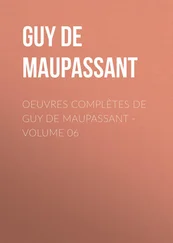Nevertheless, Alec allowed none of this relief and excitement to be betrayed to the man who stood drab and still in the garage, waiting for orders as he had all his life.
“Tell Earl that me and Mr. Stutz’ll be out after work,” Alec said. Already he was planning. He would take a bottle with him to the farm so that the three of them, Earl, Dover, and himself could pass it back and forth among them as they looked with satisfaction on the crop and what had been accomplished. The start of the celebration. Had Earl and he ever had a drink, man to man?
Dover shuffled his boots on the oil-stained cement. “Earl’ll expect you sooner,” he said apologetically. “To tell the truth, the boy is a little like the convict standing waiting for the prison gate to open. He’s got it in mind I’ll bring you straight back with me. He kind of made me promise.”
Alec was torn. He wanted to succumb, throw up everything and go to his boy, but it would have ruined the sense of occasion. It would have felt too slapdash and hasty and undignified. Besides, Stutz wasn’t in and he wanted him to share in Earl’s success. The answer he gave Dover was abrupt. “I’ve things to do. Tell Earl we’ll be out after supper.”
When Stutz suggested they break off unloading a box car of coal at six o’clock because if they didn’t, the light would be gone before they reached the farm, Alec balked as he had with Dover. He felt, obscurely, that to abandon the job unfinished would be admission of a weak and shameful lack of control on his part. He insisted they complete the work, sure there was time to spare.
There wasn’t. Mr. Stutz was proved correct. As they pulled out of Connaught it was necessary to switch on the headlights of the truck. In the west the sky was a sheet of cold ash from which was wrung some pale colour – a few streaks of salmon and gold cloud captured between the decisive black line of the horizon and the leaden weight of sombre grey sky above. When Alec and Mr. Stutz finally bumped into the farmyard, the lights behind the clouds had gone out and night had truly fallen, dense, dark, still.
The memory of stillness awakened Alec to the stillness now in Stutz’s kitchen. He realized that neither he nor Stutz had spoken for many minutes. Stutz sat with his hands on his knees, waiting patiently for him to resume speaking. Alec dredged his mind, striving to recall what his last words about Earl had been. Turning him into a farmer, he thought.
He lifted his eyes from the floor to Stutz’s impassive face. “You remember the night we drove out to see Earl’s wheat?” he asked. Somehow it was less of a question than a declaration of preoccupation.
“Yes,” said Stutz, “I do. Same as you.”
It was Dover who had greeted them swinging a kerosene lamp from side to side, sweeping back the night and lighting himself the broadest possible path.
“Where’s Earl?” Alec had immediately demanded, unable any longer to restrain his eagerness.
“Earl? I believe Earl’s deserted his post. Maybe you seen the kitchen chair by the farm gate when you drove up? No? Well, he carried a chair down there after I come back from town this morning and ever since he’s been sitting there, waiting on you. Didn’t take my word that you wouldn’t be here until after supper. Just sat there with the sun beating down on him – damnedest thing. I coaxed but he wouldn’t come into the house to take a meal. Was afraid he’d miss you, I guess. It’s the only day he hasn’t done any work since he’s been here. And then, after all that waiting, he spots your lights on the approach and up he gets and makes off that way,” Dover had said, indicating direction with the lantern, the light flaring yellow-white on his face as he lifted his arm, “towards his wheat.”
Alec had not been able to disguise his surprise. “He’s been sitting out all day? Down by the gate?”
“Down by the gate since eleven o’clock this morning. As I say, I tried to get him in but he wouldn’t budge.”
“And what did he have to say for himself?”
“What does he ever have to say for himself? Nothing, that’s what. He didn’t bother about me more than he would a fly.”
“Maybe,” Alec had speculated uneasily, “maybe he took off for the field and we’re supposed to follow. Maybe he wants to show off the crop. Notwithstanding…”
“Notwithstanding it’s dark,” Mr. Stutz had said, completing his thought for him.
So the three of them had set off to find Earl, Dover lighting the way with his lamp, Mr. Stutz and Alec on either side of him shouting Earl! to the darkness and giving anxious pause for an answer. None came. Each interval of waiting was silent except for the sound of breathing, the dry whisper of dusty grass brushing boots and pants cuffs, the burble of the whisky bottle shaken in Alec’s coat pocket. Each time they shouted his name and received no reply their pace quickened.
“When I first seen it, I had no idea what it was,” said Mr. Stutz, shifting on his chair. “No clue at all.”
“You took hold of me by the shoulder and pointed,” recalled Alec. “You asked, ‘What’s that there?’ ”
“And you said, ‘Fireflies.’ ”
“That’s what I took it for. It’s what it resembled to me, sparking on and off like that.”
“I knew it couldn’t be fireflies. Not so late in summer. Not so big and bright at a distance.”
“I didn’t think of the time of the year. It looked like fireflies to me. Flickering, blinking like that.”
“I suppose the breeze was blowing them out. He was in the open, on higher ground, and there you always catch a breeze.”
“And with us calling out, he knew we were near. He could hear us coming.”
“Sure he could. And see us, too, when we came to the fence and Dover held the lamp up over his head to cast a beam far as possible.”
“He’d have made us out, all three crowded underneath the lantern. Would have seen our faces, too. He wasn’t more than a hundred yards off.”
“A hundred yards off,” echoed the old man, “striking matches in a bone-dry crop.”
The small patch of brightness had taken hold so suddenly, so unexpectedly, that neither mind nor eye could comprehend it. For an instant the three of them had only been able to recognize a glow of agitation, something shuddering and vibrating like a swarm of bees in the black distance.
Mr. Stutz put the name to it. “Fire,” he said.
All three men strained forward at the word, the top wire of the fence squealing and bending as they leaned upon it tensely. A wind had fluttered up behind their bowed backs and ran past them out into the field and night. It was like the long drawing of a sick, fretful breath. Alec heard the dark mass of grain rattle and shiver and sensed the heads of the wheat dipping and plunging before it, the wave rippling out to break upon the fire. It rooted him to the spot.
And when that wave dashed itself against the flames, the fire popped explosively, like a flare on a night battlefield, and there stood Earl waist-deep in the wheat, awash in a hot yellow, shaking light, smoke rising from the grain surrounding him like morning mist steaming up from a marsh.
“I never seen anything catch so fast in my life,” said Mr. Stutz. “I wonder that the heat of it didn’t make him run for it.”
“I wonder,” said Monkman.
Because Earl did not run, even though the heat caused him to flinch, to turn away his face toward the three men hanging on the fence. The boy might have been blind or deaf. He gave no sign he saw them there, beckoning desperately, or heard the two of them shouting Run! while the third gripped the strand of wire and stared. Earl did not move, except to draw up his shoulders against the searing heat which pounded his back and caused him to wobble as he stood his ground. Plunged to his hips in the crop, shrinking into himself, he had looked very small to Mr. Stutz and Dover, smaller still to his father. Perhaps the great flapping curtain of greasy smoke which had gone roaring up into the sky at his back had made him seem more so – a poor, lost actor without lines to speak, made to occupy and hold a stage with nothing but his face, his hands, his eloquent silence.
Читать дальше












